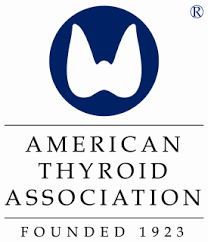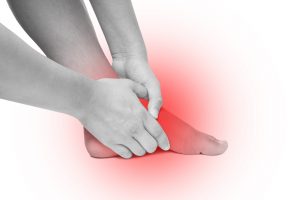It is likely that you may have felt back pain at one time or another. However, if your back pain is mostly in your lower back, and radiates down your leg, you may have sciatica.
Facts about Sciatica
- Sciatica involves pain along the sciatic nerve that starts in your lower back and radiates down each hip and thigh into the legs.
- Sciatica usually only affects one side of the body. The condition occurs when there is some type of pressure on the nerves.
- Bone spurs, herniated discs, spinal stenosis, or narrowing of the spine can all cause sciatic pain.
- Symptoms may include a sharp, burning pain in the lower back into the thigh and hip area. Furthermore, some people may feel tingling or numbness in the leg area as well. In addition, coughing, sneezing, and sitting for a long period of time can make sciatica symptoms worse.
Who is at Risk for Sciatica?
Those at most risk for sciatica are those who are:
- Older with greater chance of age-related spine conditions
- Obese
- Inactive
- Working at a job where they may lift heavy loads often that put pressure on the spine.
Furthermore, those with diabetes may be at greater risk of getting sciatica due to the increased risk for nerve damage with this disease.
Why Surgery is Not Always the Answer for Sciatic Pain
Acute pain from Sciatica may be treated with anti-inflammatory drugs, muscle relaxants, and narcotics. Furthermore, the inflammation around the affected nerve is sometimes treated with corticosteroid injections. However, this type of treatment may only last for several months. Due to the need for long-term use in treating sciatic pain, and because of long-term side effects, healthcare providers may be hesitant to prescribe steroid treatment. In addition, physical therapy can strengthen the muscles surrounding the nerves in the back to help reduce pressure on the area and prevent further injury.
Although not suggested for all cases, surgery may be required to relieve severe sciatic pain. Severe cases of sciatica may require surgery because they may start to affect bladder and bowel function, or cause leg weakness.
Non-surgical sciatica treatment options
Although surgery may be the first thing you think of in treating back pain like sciatica, many studies support effective natural treatments. Surgery may be thought of first because it is effective in relieving acute pain. In fact, surgery has been found to relieve acute pain more effectively in the short-term than conservative treatments. However, a 2016 study in the British Medical Journal Open found little to no difference in surgery’s effectiveness in relieving neuropathic pain long –term.
- A 2016 study in Trials has found that acetyl-L-carnitine was neuroprotective in the central nervous system and that it increased peripheral nerve regeneration. This is because the compound was able to regrow or repair damaged nerves in the region of the body around the feet and legs.
- A 2015 study in Minerva Ginecologica reported that lipoic acid was found to be effective in treating patients with pain associated with diabetic neuropathy, sciatica, and carpal tunnel syndrome.
- A 2013 review in Neural Plast found that the methylcobalamin form of B12 can help improve nerve conduction and nerve regeneration of damaged nerves in patients with neuropathic pain.
- A 2016 study in Acta bio medica has found that patients with neuropathic pain who used alpha-lipoic acid had improved quality of life and a reduction in pain markers.
- A 2016 study in the Journal of Drug Assessment found that those who took diclofenac, a non-steroidal anti-inflammatory drug, with B1, B6, and B12 had greater mobility restoration and greater improvements in pain and function than those who took the drug alone.
Therefore, check out Sciaticare to show your nerves some love and help support your sciatica and healthy nerves. Sciaticare is effective in managing sciatic pain because of its combination of “nerve-healthy” vitamins and compounds including:
- Vitamin B1, or thiamine
- Vitamin B6, the methylcobalamin form of B12
- Magnesium
- Aacetyl-L-carnitine
- Alpha-lipoic acid
In conclusion, be sure to check out the wonderful work of the U.S. Pain Foundation that is working everyday to help improve the lives of those suffering with chronic pain conditions.
By Staci Gulbin, MS, MEd, RD, LDN

Sources:
Costantino, D. et al. (2015 Oct) “Use of alpha-lipoic acid and omega-3 in postpartum pain treatment,” Minerva Ginecologica, 67(5): 465-73.
Curran, MW, et al. (2016 Apr 14) “Acetyl-L-carnitine (ALCAR) to enhance nerve regeneration in carpal tunnel syndrome: study protocol for a randomized, placebo-controlled trial,” Trials, 17:200. doi: 10.1186/s13063-016-1324-2.
Geller, M. et al (2016 Mar 31) “Comparison of the action of diclofenac alone versus diclofenac and B vitamins on mobility in patients with low back pain,” Journal of Drug Assessment: 5(1): 1-3. eCollection 2016.
Gugliotta, M, et al. (2016 Dec 21) “Surgical versus conservative treatment for lumbar disc herniation: a prospective cohort study. British Medical Journal Open, 6(12): e012938. doi: 10.1136/bmjopen-2016-012938.
Maglione, E. et al (2015 Dec 14) “Increasing bioavailability of R-alpha-lipoic acid to boost antioxidant activity in the treatment of neuropathic pain,” Acta bio-medica: Atenei Parmensis, 86(3):226-33.
“Sciatica” (2016) Mayo Clinic: Disease and Conditions.http://www.mayoclinic.org/diseases-conditions/sciatica/basics/treatment/con-20026478
Zhang, M. et al. (2013) “Methylcobalamin: A Potential Vitamin of Pain Killer” Neural Plast, doi: 10.1155/2013/424651 PMCID: PMC3888748









